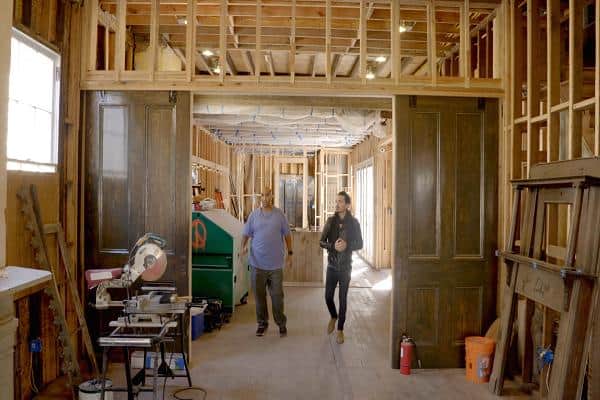
Self-made millionaire Sidney Torres built his fortune flipping homes in New Orleans. Today, he uses his money and expertise to help struggling property investors on CNBC’s “The Deed.”
On Wednesday’s episode, Torres helps a close friend, James Brooks, finish a flip he’s been working on for more than three years. Brooks, who bought the rundown home for $230,000, finds himself not only out of money, but nearly half a million dollars in debt.
But before doing business with his good friend, Torres lays some ground rules. Here are three things to consider before flipping a property with friends or family:
1. Draw up a contract
It’s important to be on the same page from the get go, so the first thing Torres does is establish his terms: A $200,000 loan, interest-free for 120 days, in exchange for 15 percent of the profit of the home. Torres and Brooks plan to list the home for $1 million, which, after factoring in Brooks’ debt, would net him $350,000. That means Torres would take home $52,000.
If you’re the one lending your own money, like Torres, don’t be afraid to insert a penalty clause, even it’s uncomfortable to bring up. Torres, who knows that Brooks is attached to the house and may not sell it, does just that. “This is the kicker,” he tells his friend. “If you decide to keep the house, I’m locked in on that $52,000. Plus, after 120 days, you pay me 12 percent interest until you pay off the $200,000.”
2. Set a strict schedule and budget
Next, Torres helps Brooks establish a 90-day schedule and a detailed budget that accounts for every dollar of the $200,000 loan.
Sticking to a schedule is just as important as sticking to a budget. After all, “time is money,” says the real estate mogul.
And if you’re the one loaning money, don’t hand out your cash until the schedule and budget are set, Torres adds.
Real estate mogul: The 1 hard truth all home flippers should know Real estate mogul: The 1 hard truth all home flippers should know
3. Communicate throughout the project
When you actually start the flip with your friend or family member, consistent communication is key. You want to be upfront about any unexpected costs that may arise or setbacks that could affect the schedule.
In Brooks’ case, he realizes he needs another $40,000 to finish the project. Rather than telling Torres right away, he sits on it for nearly three weeks. Torres ends up loaning him the extra money, but warns him that in the future, he should immediately bring up any major schedule or budget changes.
If you’re communicative from the beginning, you can have success flipping with friends and family. Torres and Brooks stuck to their schedule, finished the flip in 90 days and ended up selling it for more than they originally hoped: a cool $1.29 million.